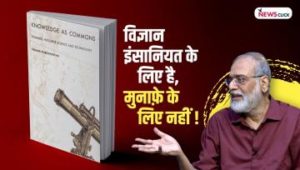The Telecom Regulatory Authority of India (TRAI) has come out with a consultation paper dated March 27, 2015. Titled Regulatory Framework for Over the Top (OTT) Services. Even a quick look at this document makes clear that this is regulatory overreach on a grand scale. TRAI is essentially claiming that every activity carried out on the internet is an Over-TheTop service and TRAI can ask for it to be licensed as a telecom service.
In other words any service such as e-retail, media, health care, education, etc., are all telecom services. If we do not like this, then we should give up net neutrality or the principle that all services and data packets on the internet should be treated equally irrespective of the nature of the service, or the source or destination of the packet.
A number of organisations had asked the TRAI to call for a consultations on net neutrality and its violations by the telecom operators. Instead, TRAI has come out with a consultation that promises even worse, that henceforth, all services – or at least the ones that compete with the telecom companies – is liable to be licensed. If you do not like licensing, then give up net neutrality, these seem to be the only choices that TRAI is offering. Take your pick, the rock or the hard place.
The telecom operators argument seems to be that the internet companies are making a ton of money through their services and apps. Since they use “our” networks to make this money, we should also get our cut. The problem with this argument is that the telecom operators are indeed getting a cut out of it – we as users pay data charges for internet services. And the growth of telecom revenue from data services has grown by nearly 100% in 2014. In fact, every quarter, shows a huge leap in the revenue of telecom companies from such services. It is precisely these internet apps and services, such as Facebook, YouTube, WhatsApp, etc., that are fuelling this growth of revenue from data services.
What telecom companies are asking therefore is to be paid twice. We as users pay to telecom companies for these services through our internet rates. They also want the internet companies to pay them more money for speeding up their services. Not to reduce our rates but to make even more money than they are making today.
Currently, we do not need a license to create a website, provide a service through the internet or provide an app for use on computers, tablets or mobile phones. All this could change if TRAI’s definition of OTT services is accepted. By defining any application or service that uses the Internet to be an OTT, it becomes subject to TRAI’s regulation.
An analogous case will be defining any service that uses telephones (good old voice calling) to be an OTT service. So if I use the telephone for buying or selling shares in the share market, TRAI could argue it should be regulated as an OTT service.
So we now have a pincer attack: one is what telecom companies are already doing. Violating net neutrality by teaming up with some of the major internet players and providing access only to a restricted internet. Or accept TRAI’s definition of the internet as a bunch of OTT services, subject to a licensing regime that is completely unworkable for the internet. The strategy appears to scare us so much with the threat of licensing the internet services including websites and providing apps, that we will accept the lesser evil of abandoning net neutrality.
While the TRAI document quotes extensively from the telecom operators and their associations, missing completely is a view from the consumers. Why is our net so slow? Why are Indians paying such high charges for the internet? Instead, we have the TRAI promising to be Lady Bountiful for the telecom companies. A sorry document that sullies the relatively clean image of TRAI as a regulator.



